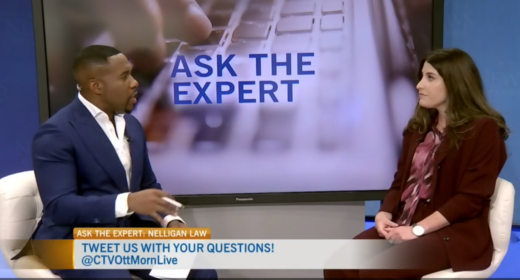A recent case, Caron v. Rowe, provides a good reminder of the issues that can arise in matters that intermingle both family and estates law.
The case involved a man named Paul Rowe, who made a will in May 2009, leaving his entire estate to his parents. That same year, but after Paul did his will, he and Andrea Caron entered into a marriage contract and were married two days later. Sadly, Paul died two years after that. His marriage to Andrea invalidated his will, which, when it was done up, was not drafted indicating he was about to be married (something a will needs to specify it you want it to stand after you get married). As a result, he died ‘intestate’.
After Paul’s death, Andrea, as his surviving spouse applied to the Court to be appointed as the estate trustee without a will. Her in-laws, and sole beneficiaries under his invalidated will, objected on the basis of the marriage contract, which provided that Paul and Andrea were not entitled to share in each other’s property in the event that they separated, and further, that Paul’s home (into which Andrea had moved in after the wedding) was to remain his sole property forever.
The only provision in the couple’s marriage contract that contemplated estates laws addressed child support claims with respect to Andrea’s children from a prior relationship. The contract didn’t contain a specific release of spousal claims related to Paul’s estate (namely, claims Andrea could make against his estate should he die while they were still married); however it did incorporate a release of spousal claims in the event of their separation.
Ontario case law is very clear in requiring that a release of all property claims in a domestic agreement is not sufficient to also release all property claims in relation to a deceased’s estate. Instead, there must be clear language explicitly releasing property claims against the estate, and evidence that the person giving the release understood the nature and consequences of it. In this case, as the court found, when Andrea entered into the marriage contract, she may have never contemplated any impact on her property rights in the event of Paul’s death while they were still a happily married couple.
Accordingly, the judge found that while Andrea had waived her rights with respect to spousal property claims in the event of her and Paul’s separation or divorce, she didn’t do so with respect to Paul’s property in the event of his death. In the end, Andrea was appointed as the estate trustee without a will, and ultimately received the entirety of Paul’s estate pursuant to Ontario’s intestacy rules, completely ousting the remainder of Paul’s family from inheriting anything.
What you need to tell your lawyer
The moral of this story is, if you are doing estate planning and intend on marrying someone, you need to ensure that your family law lawyer and your estates lawyer clearly understand your wishes when preparing your estate plan and domestic contracts (such as a marriage contract or a cohabitation agreement). This will allow your lawyer to make those wishes explicit in the agreement in a way which will be upheld by a court should a dispute arise. In this regard, some points to remember include:
- A marriage will make your existing Will void (unless your existing will indicates it is being executed with the intention of marrying someone) and a new one will be necessary.
- If you do not have a Will, you should get one done as soon as possible. If you die without a will, your married spouse (even if you are separated) will inherit the first $200,000 of your estate, and after that amount, if there is anything else, your spouse will get a third, and your surviving children will equally share the remaining 2/3 of your estate (if you have no surviving children, your surviving spouse will received your entire estate – even if you are separated but not divorced); and
- You will need to decide if you want the terms of your marriage contract to apply if your spouse dies. If so, your lawyer will need to specifically include a waiver in the agreement, releasing your estate from all of your spouse’s property claims.
These are but a few issues that can come into play. For more information, read my full article.


